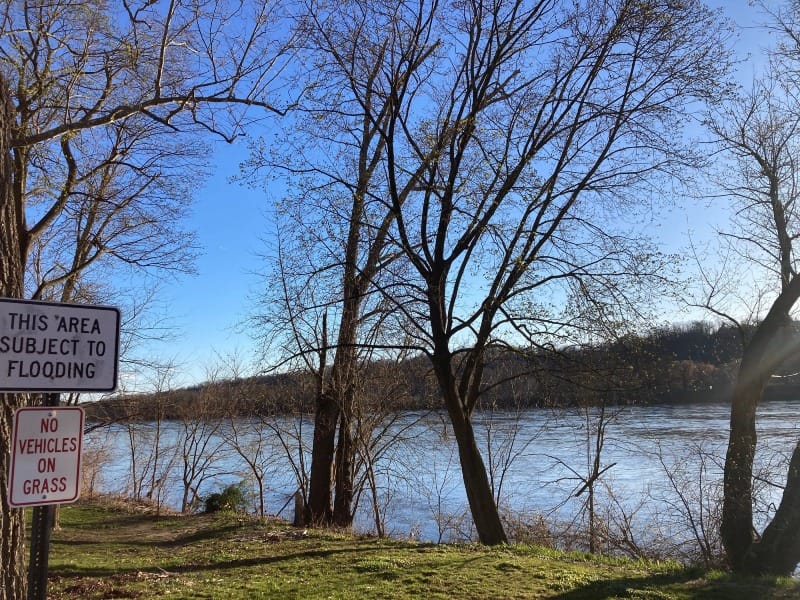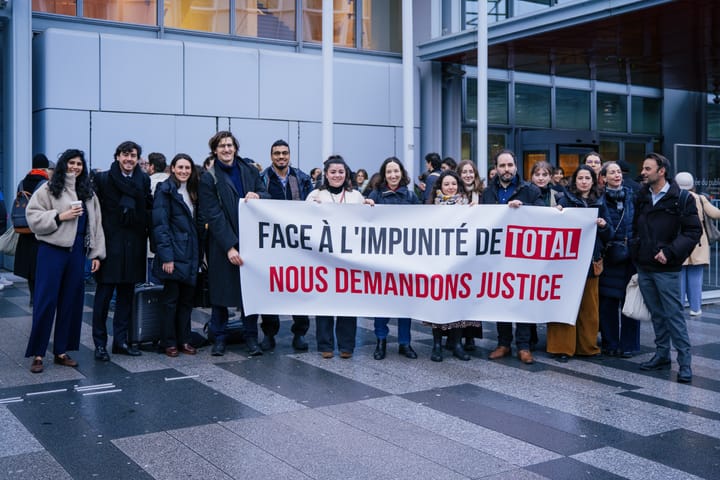Court Dismisses Pennsylvania County's Lawsuit Against Big Oil

State courts have been split over whether to advance cases alleging fossil fuel companies deceived the public about climate change.
A state court judge in Pennsylvania has decided to toss out a lawsuit filed by a county government last year against major oil and gas companies alleging they deceived the public about the climate change consequences of their products. The decision is the latest in a string of dismissals in similar cases brought by state and local governments targeting the fossil fuel industry, and comes at a time when the battle over efforts to hold the industry liable for climate harms in the US is heating up.
On May 16, Judge Stephen Corr of the Court of Common Pleas in Bucks County ruled to dismiss a climate deception suit launched in March 2024 by Bucks County against six big oil firms and the American Petroleum Institute. According to Corr, the county’s lawsuit is primarily concerned with greenhouse gas emissions, and because these emissions are subject to federal regulation under the Clean Air Act, federal law preempts the county’s state law claims.
“There is no question that emissions are the sole province of the federal government,” Corr wrote in his opinion, adding: “Because we find the causes of action set forth in the complaint are so intertwined with emissions, we conclude that we have no subject matter jurisdiction over the claims raised.” In making this ruling, Corr embraced the argument put forth by industry lawyers that Bucks County’s case is essentially an attempt to address the planet-warming emissions from fossil fuels, even if it is pled as a case about deception. Corr noted that the term “emissions” appears in the county’s complaint over 100 times, compared to 39 times for the words “deceptive” and “deception.”
“While not conclusive, that disparity informs the Court that the focus of the complaint is more on emissions than on deception,” the opinion states.
In a press release announcing its lawsuit last year, Bucks County – located just outside of Philadelphia – said it aims “to hold oil giants BP, Chevron, ConocoPhillips, Exxon Mobil, Philips 66, Shell and API financially accountable for the damage their ‘big tobacco-style’ campaign of deception has wrought on the environment.” The 170-plus-page complaint details evidence that the oil industry knew precisely about the potential dangers associated with unrestrained fossil fuel use, yet worked to undermine public understanding of these risks in order to protect its profits.
“These companies have known since at least the 1950s that their ways of doing business were having calamitous effects on our planet, and rather than change what they were doing or raise the alarm, they lied to all of us,” Bucks County Commissioner Gene DiGirolamo said in the press release announcing the lawsuit.
The county brought a handful of state tort claims against the fossil fuel defendants, including failure to warn, negligence, public and private nuisance, trespass, and civil conspiracy. Ultimately, however, the trial court decided that such claims are barred by federal law.
“The court’s decision makes clear that some issues are much better off in federal court because of their complexity and far-reaching consequences,” an ExxonMobil spokesperson said in a statement responding to the court’s ruling.
Bucks County did not immediately respond to a request for comment on the ruling.
String of Dismissals
“Today we join a growing chorus of state and federal courts across the United States, singing from the same hymnal, in concluding that the claims raised by Bucks County are not justiciable by any state court in Pennsylvania,” Corr wrote, referencing rulings from state courts in Maryland, New York, New Jersey, Delaware, and from a federal appeals court, that have similarly come down in favor of fossil fuel industry defendants in finding that federal law preempts state law claims pertaining to the issue of climate change.
The federal court decision came in 2021 from the Second Circuit Court of Appeals, affirming dismissal in a nuisance lawsuit filed by New York City against several big oil companies. The city then brought another case targeting Big Oil alleging violations of the city’s consumer protection law, but in January a New York state court ruled to dismiss the case. New York City is appealing that decision.
State courts in New Jersey and Maryland also ruled earlier this year to dismiss climate deception cases brought by the state of New Jersey and by the city of Annapolis and Ann Arundel County. Last year a Maryland court also tossed out a similar suit filed by the city of Baltimore. The government plaintiffs are appealing these rulings.
Courts Split as Climate Liability Battle Heats Up
Other cases alleging fossil fuel companies deceived the public about the climate dangers of their products, however, are advancing, as some state courts have rejected industry defendants’ bids to get the cases dismissed. A consumer protection lawsuit filed by the Commonwealth of Massachusetts against ExxonMobil, for example, has survived motions to dismiss and is in pre-trial discovery. Courts in Hawaii, including the state’s supreme court, have similarly allowed a climate tort suit brought by Honolulu against oil and gas companies to move forward. And just last week, the Colorado Supreme Court upheld a trial court’s decision denying oil companies’ motions to dismiss a climate deception case brought by the city and county of Boulder. Similar lawsuits brought against Big Oil by Minnesota, Vermont, the District of Columbia, and Puerto Rican municipalities are advancing.
More than 30 climate deception lawsuits have been filed against the fossil fuel industry in recent years by state, municipal, and Tribal governments. As state courts start to grapple with the merits of the claims and consider arguments from industry defendants to dismiss, the record so far has been mixed with some decisions favoring plaintiffs and others favoring defendants.
Hannah Wiseman, a professor of law at Penn State University, said it is likely that such a split in the courts will continue.
“We’ll continue to see a divide here among the states, because the big question is whether these suits based on claims of deception and consumer impacts are really air quality claims in disguise. And you just have courts understandably coming to very different conclusions,” she told Climate in the Courts.
While industry defendants did notch several wins earlier this year with dismissals in some of the cases, they also lost in their attempt to get the US Supreme Court to intervene in Honolulu’s suit, as the court in January declined to take up oil companies’ petitions. In March, the Supreme Court also denied a request from 19 Republican-led states to directly challenge California and several other ‘blue’ states that have sued Big Oil.
Although that request flopped, a coalition of Republican states are now suing to try to stop novel legislation passed in both New York and Vermont that holds large fossil fuel producers liable for carbon pollution and requires them to help pay for climate-related costs. On May 1, the US Department of Justice also filed suit against New York and Vermont challenging their “climate superfund” laws. Additionally, in a highly unusual move, DOJ sued Hawaii and Michigan in an attempt to preemptively block those states from bringing anticipated lawsuits against fossil fuel companies. Hawaii then filed its climate deception lawsuit the next day.
If one of the deception lawsuits does get to trial, observers say that would be a significant breakthrough for attempts to hold the fossil fuel industry accountable, in a similar manner to how the tobacco industry was ultimately held accountable.
“I think [the fossil fuel] industry might be concerned this could ultimately go the way of tobacco,” Wiseman said. “It’s not at all clear that enough momentum will build for this to have the same outcome as the tobacco litigation. But the evidence is pretty powerful, if you can get a court to hear that evidence.”


